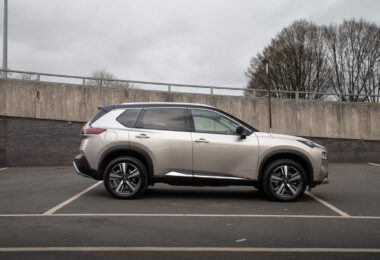All parents must confront this question eventually: when should you let your child make their own way to school?
Of course, the worries parents have when considering it seem sensible. In a survey, Family Lives and Living Streets found that parents are very apprehensive about their children being abducted or involved in a traffic-related incident. As a result, they try to keep their kids safe by driving them.
But the threat posed by stranger-danger is surprisingly low, with about a one in a million chance of a stranger kidnapping a child. Parents insisting on driving their kids to school, on the other hand, drastically increase the risk of traffic accidents.
Despite these facts, a low number of children walk to school on their own. The University of Westminster found that the independent walking rate for primary school children dropped from 86 per cent in 1971 to only 25 per cent in 2013. It’s not only a question of the child’s safety – there are other factors to consider which show that parents should give their children more independence.
Benefits for children walking alone to school
According to the government, children should have at least seven hours of physical activity every week, but 77 per cent of boys and 80 per cent of girls are not meeting this recommendation. Letting your kids walk to school will give them regular physical activity, increasing their health and wellbeing while decreasing the risk of obesity.
Through the exposure, your kids will confront a variety of different traffic-related situations, helping them to learn to evaluate different types of danger and react accordingly, teaching them the ins and outs of road safety and how to assess various situations.
If you let your children walk to school in pairs or small groups, they will be able to develop communication skills by talking to their peers. This is quite a different form of speaking than the usual input from teachers or parents. It is a crucial part of their development and a great opportunity for them to hone these skills – not to mention a way to let them explore the world on their own.
Giving your children more independence will boost their confidence and enhance their ability to act on their own accord. They begin to realise that you trust their judgment and ability, which will result in them being more confident in wanting to embrace further responsibilities.
At what age is it appropriate for them to walk alone?
There is no law that indicates the appropriate age for a child to begin walking to school alone. That being said, there are a few questions you should ask yourself when considering the right time.
How safe is the journey? Evaluate the distance to the school, look out for the number of street lights and pavements, the types of people who roam around, and how busy the roads are. If there’s nothing particularly dangerous about the area, and the distance is appropriate, there should be no reason not to let them walk to school alone.
How mature is the child? Not all children develop at the same pace; some might be ready sooner than others. Consider their general independence and ability to remember directions, their sensibility, and how ‘street smart’ they are. Do they know when to ask for help? Can they detect potential danger from strangers? Can they recognise the most common traffic signals and pavement markings? If the answer to these questions is ‘yes’, the child is probably up to the challenge.
How can you ensure their safety?
First of all, leave the car at home. Unless there is a very good reason it is always advisable either to let them walk to school on their own or otherwise to walk with them, if possible. This reduces the risk of car accidents, protects the environment, and gives the child much-needed exercise.
By walking to school with your children from a young age, you can teach your offspring road safety skills and help them get used to finding the way by themselves. This also gives you the opportunity to identify whether your child is ready to walk alone. If you don’t have the time to walk with your children because of your work, consider walking the way to school on the weekends or in the evenings to practise.
Consider buying them a cheap mobile phone and encourage them to use it in emergencies. While the actual risk of stranger-danger is low, preparing for the worst is still a good idea. It is also helpful to teach them the difference between ‘good’ and ‘bad’ strangers. They should be comfortable speaking to policemen, teachers, as well as other parents with small children if they need help.
Children should be encouraged to walk to school alone as soon as they are ready. Let them become more independent and grow on their own. It’s not abandonment, but a way of demonstrating love by trusting them.








